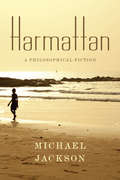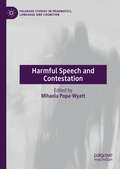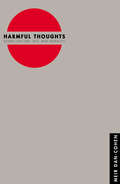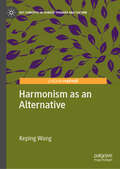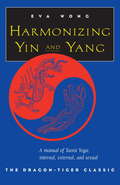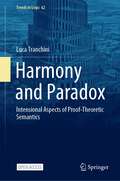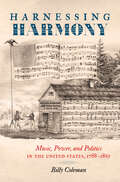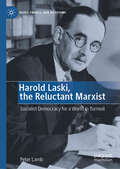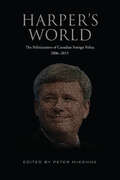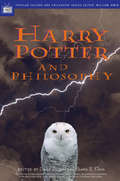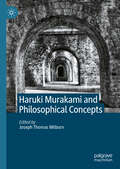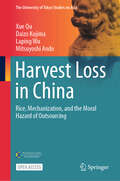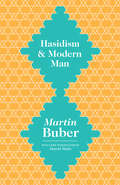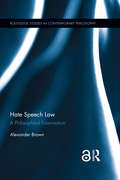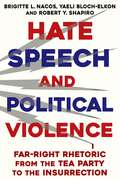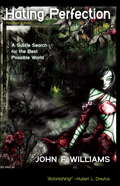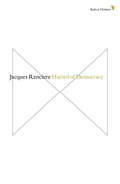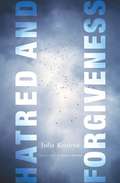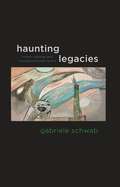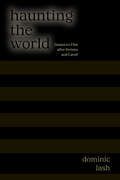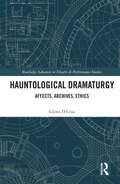- Table View
- List View
Harmattan: A Philosophical Fiction (Insurrections: Critical Studies in Religion, Politics, and Culture)
by Professor Michael D. JacksonWe all experience qualms and anxieties when we move from the known to the unknown. Though our fulfillment in life may depend on testing limits, our faintheartedness is a reminder of our need for security and our awareness of the risks of venturing into alien worlds. Evoking the hot, dust-filled Harmattan winds that blow from the Sahara to the Gulf of Guinea, this book creatively explores what it means to be buffeted by the unforeseen and the unknown. Celebrating the life-giving potential of people, places, and powers that lie beyond our established worlds, Harmattan connects existential vitality to the act of resisting prescribed customs and questioning received notions of truth. At the book's heart is the fictional story of Tom Lannon, a graduate student from Cambridge University, who remains ambivalent about pursuing a conventional life. After traveling to Sierra Leone in the aftermath of its devastating civil war, Tom meets a writer who helps him explore the possibilities of renewal. Illustrating the fact that certain aspects of human existence are common to all people regardless of culture and history, Harmattan remakes the distinction between home and world and the relationship between knowledge and life.
Harmful Speech and Contestation (Palgrave Studies in Pragmatics, Language and Cognition)
by Mihaela Popa-WyattThis edited book explores how harmful speech works, how it can be used to change societies in bad ways and how we can defend against it. Harmful speech comes in a variety of forms, including hate speech, dehumanizing speech, misogynistic speech, derogatory speech, misgendering, marginalizing speech, and much more. What is common to all these types of speech is that they don’t just offend but seek to harm members of vulnerable groups, so that they feel humiliated, attacked, denigrated, silenced, and dehumanised. These harms are not confined to the conversation in which such speech is used, but may involve various downstream effects such as moral, social, and epistemic harms. Harmful speech may also shift social norms by changing people’s opinions and ultimately changing norms about how targets ought to be treated. Harmful speech uses this effect to establish and maintain oppressive norms, entrench hierarchies and shape power relations. The contributions in this volume examine the mechanisms underlying various forms of harmful speech and possible responses and remedies. They combine a variety of tools and perspectives, including philosophy of language, linguistics, ethnography, with a particular focus on issues in the semantics/pragmatics of derogatory expressions, speech acts and conversational dynamics. The chapters bring these conversations together and highlight the ways in which philosophers of language have sought to build bridges in recent years with social and political philosophy concerned with the nature of oppression and responses to it. These topics offer the opportunity for a valuable integration of insights from different perspectives.
Harmful Thoughts: Essays on Law, Self, and Morality
by Meir Dan-CohenIn these writings by one of our most creative legal philosophers, Meir Dan-Cohen explores the nature of the self and its response to legal commands and mounts a challenge to some prevailing tenets of legal theory and the neighboring moral, political, and economic thought. The result is an insider's critique of liberalism that extends contemporary liberalism's Kantian strand, combining it with postmodernist ideas about the contingent and socially constructed self to build a thoroughly original perspective on some of the most vital concerns of legal and moral theory. Dan-Cohen looks first at the ubiquity of legal coercion and considers its decisive impact on the nature of legal discourse and communication, on law's normative aspirations and claim to obedience, and on the ideal of the rule of law. He moves on to discuss basic values, stressing the preeminence of individual identity and human dignity over the more traditional liberal preoccupations with preference-based choice and experiential harm. Dan-Cohen then focuses more directly on the normative ramifications of the socially constructed self. Fundamental concepts such as responsibility and ownership are reinterpreted to take account of the constitutive role that social practices--particularly law and morality--play in the formation of the self. Throughout, Dan-Cohen draws on a uniquely productive mix of philosophical traditions and subjects, blending the methods of analytic philosophy with the concerns of Continental philosophers to reconceive the self and its relation to ethics and the law.
Harmonism as an Alternative (Key Concepts in Chinese Thought and Culture)
by Keping WangThis Key Concepts pivot considers the fundamental Chinese cultural ideal of harmony (hé/和). Historically originating from Confucianism, the concept of harmony sits at the heart of Chinese traditional culture, which is characteristically morality-based and harmony-conscious due to the central role of pragmatic reason and wisdom nurtured through Confucianism, Daoism, Mohism, Legalism and other schools of thought. This pivot delineates the rationale of the Chinese philosophy of harmony and its implications for modern social practices worldwide. It notably reexamines the relevance of hé beyond the realm of philosophy, and how this concept can impact on modern day human relations, amongst individuals and families as well as on a wider societal scale. It explores how hé can affect perspectives on political interaction, international relations and human conflict, as well as the interaction between man and nature. Addressing the inevitable tension between theory and practice, this book argues for the very real relevance of hé in 21st century cultural, social, political and economic spheres in China and beyond.
Harmonizing Yin and Yang
by Eva Wong"To age with the sun and moon and be renewed by spring and summer, to conserve the seeds of growth in autumn and winter and to be nourished by the eternal breath of the Tao--these are the goals of the Taoist alchemists, the masters of the arts of health, longevity, and immortality. This book is a translation of a concise Taoist alchemical manual known as the Dragon-Tiger Classic, along with its two most important commentaries. The classic, written in ancient times by an unknown author and published during the fifteenth century BCE, is regarded by contemporary Taoist practitioners as the most complete guide to spiritual transformation. It covers the three forms of Taoist practice: * External alchemy, concerned with the ingestion of minerals, herbs, and other substances to attain health, longevity, and immortality *
Harmony and Paradox: Intensional Aspects of Proof-Theoretic Semantics (Trends in Logic #62)
by Luca TranchiniThis open access book investigates the role played by identity of proofs in proof-theoretic semantics. It develops a conception of proof-theoretic semantics as primarily concerned with the relationship between proofs (understood as abstract entities) and derivations (the linguistic representations of proofs). It demonstrates that identity of proof is a key both to clarify some —still not wholly understood— notions at the core of proof-theoretic semantics, such as harmony; and to broaden the range of the phenomena which can be analyzed using the tools of this semantic paradigm, so as to include for instance paradoxes.The volume covers topics such as the philosophical significance of different criteria of identity of proofs, and adequacy conditions for an intensional account of the notion of harmony. The author also examines the Prawitz-Tennant analysis of paradoxes by investigating on the one hand the prospectsof turning it into a theory of meaning for paradoxical languages, and on the other hand two distinct kinds of phenomena, first observed by Crabbe and Ekman, showing that the Tennant-Prawitz criterion for paradoxicality overgenerates. This volume is of interest to scholars in formal and philosophical logic.
Harmony and War: Confucian Culture and Chinese Power Politics
by Yuan-Kang WangConfucianism has shaped a certain perception of Chinese security strategy, symbolized by the defensive, nonaggressive Great Wall. Many believe China is antimilitary and reluctant to use force against its enemies. Instead, the country practices pacifism and refrains from expanding its boundaries, even when nationally strong. In a path-breaking study that travels seven hundred years of Chinese history, Yuan-kang Wang resoundingly discredits this notion, recasting China as a practitioner of realpolitik and a ruthless purveyor of expansive grand strategies. Leaders of the Song Dynasty (960-1279) and Ming Dynasty (1368-1644) prized military force and shrewdly assessed the strength of China's adversaries. They adopted defensive strategies only when their country was weak and pursued expansive goals, such as territorial acquisition, enemy destruction, and total military victory, when their country was strong. Despite the dominance of an antimilitarist Confucian culture, warfare was not uncommon in the bulk of Chinese history. Grounding his research in primary Chinese sources, Wang outlines a politics of power that are crucial to understanding China's strategies today, especially its policy of "peaceful development," which it has adopted only because of military, economic, and technological weakness in relation to the United States.
Harmony and War: Confucian Culture and Chinese Power Politics (Contemporary Asia in the World)
by Yuan-kang WangConfucianism has shaped a certain perception of Chinese security strategy, symbolized by the defensive, nonaggressive Great Wall. Many believe China is antimilitary and reluctant to use force against its enemies. It practices pacifism and refrains from expanding its boundaries, even when nationally strong. In a path-breaking study traversing six centuries of Chinese history, Yuan-kang Wang resoundingly discredits this notion, recasting China as a practitioner of realpolitik and a ruthless purveyor of expansive grand strategies. Leaders of the Song Dynasty (960-1279) and Ming Dynasty (1368-1644) prized military force and shrewdly assessed the capabilities of China's adversaries. They adopted defensive strategies when their country was weak and pursued expansive goals, such as territorial acquisition, enemy destruction, and total military victory, when their country was strong. Despite the dominance of an antimilitarist Confucian culture, warfare was not uncommon in the bulk of Chinese history. Grounding his research in primary Chinese sources, Wang outlines a politics of power that are crucial to understanding China's strategies today, especially its policy of "peaceful development," which, he argues, the nation has adopted mainly because of its military, economic, and technological weakness in relation to the United States.
Harnessing Harmony: Music, Power, and Politics in the United States, 1788–1865
by Billy ColemanFollowing the creation of the United States, profound disagreements remained over how to secure the survival of the republic and unite its diverse population. In this pathbreaking account, Billy Coleman uses the history of American music to illuminate the relationship between elite power and the people from the early national period to the Civil War. Based on deep archival research in sources such as music periodicals, songbooks, and manuals for musical instruction, Coleman argues that a particular ideal of musical power provided conservative elites with an attractive road map for producing the harmonious union they desired. He reassesses the logic behind the decision to compose popular patriotic anthems like "The Star-Spangled Banner," reconsiders the purpose of early American campaign songs, and brings to life a host of often forgotten but fascinating musical organizations and individuals. The result is not only a striking interpretation of music in American political life but also a fresh understanding of conflicts that continue to animate American democracy.
Harold Laski, the Reluctant Marxist: Socialist Democracy for a World in Turmoil (Marx, Engels, and Marxisms)
by Peter LambThis book examines Harold Laski’s relationship to Marxism. Laski was a reluctant Marxist; he had been a pluralist, democratic socialist who wanted to reach a better society by means of parliamentary, constitutional and associational channels. In fact, he never abandoned these early aspirations. In the 1930s and 1940s he wove them into a distinctive Marxist position as he gradually came to believe that there was no answer to Marxist philosophy on history, social change and the prospects for socialism. It is the incorporation of his earlier political thought into his later work that makes his Marxism so fascinating and his work raises important questions. Harold Laski’s Marxism aims to bring a relatively forgotten political theorist back into the spotlight. Peter Lamb provides an overview to Laski’s political thought in the 20th century and explores his connections to essential foundations of Marxist thought. He ends with a discussion of ways in which Laski’s Marxism is of lasting significance and can contribute to more recent Marxist and neo-Marxist debates.
Harper’s World: The Politicization of Canadian Foreign Policy, 2006-2015
by Peter McKennaIn examining the nuts and bolts of former prime minister Stephen Harper’s foreign policy universe between 2006 and 2015, Harper’s World turns to key foreign policy experts to break down and evaluate Harper’s international policies – from relations with China to his engagement with Canada’s Arctic region. In explaining both the what and the why of Harper’s foreign policy record, this book argues that the policy decisions of Harper’s Conservative government were primarily shaped and motivated by domestic, regional, and, most importantly, electoral calculations. Bringing together Canada’s leading foreign policy specialists, Harper’s World identifies the push and pull factors of Harper’s approach to various Canadian foreign policy issues. This collection offers original analyses, factual evidence, case studies, and supporting documentation to shed light on Harper’s foreign policy orientation during his almost ten years in power.
Harry Potter and Philosophy
by William Irwin David Baggett Shawn E. KleinIn Harry Potter and Philosophy, seventeen philosophical experts unlock some of Hogwarts' secret panels, and uncover surprising insights that are enlightening both for wizards and the most discerning muggles.
Haruki Murakami and Philosophical Concepts
by Joseph Thomas MilburnThis book provides interdisciplinary perspectives on the work of the Japanese writer Haruki Murakami, with a particular focus on the conceptual material of his work. It seeks to answer the following questions: Is there any philosophic material or concepts in the work of Haruki Murakami? If so, why are they important? Does philosophic engagement add anything to the Murakami research field? Equally, does Murakami&’s fiction present us with anything valuable for the field of philosophy? The volume uniquely develops the field of Murakami studies through acting as a forum for interdisciplinary researchers to share their perspective on his work. Importantly, it furthers the conversation on Murakami&’s philosophic value and through doing so, is a must-read not only for those interested in Japanese literature or culture, but also for those interested in the productive space existing at the intersection of philosophy, literature, and psychoanalysis.
Harvest Loss in China: Rice, Mechanization, and the Moral Hazard of Outsourcing (The University of Tokyo Studies on Asia)
by Xue Qu Daizo Kojima Laping Wu Mitsuyoshi AndoThis open access book examines food security in China with a specific focus on rice harvesting. As the most populous agricultural developing country, China’s food security is closely related to the world’s food security. An urgent issue internationally, data show that every year, about one-third of food is lost and wasted before it even reaches the market, mainly in less developed countries. To this end, halving the amount of food loss and waste is one of the Sustainable Development Goals. In 2021, the Chinese government issued the Anti-Food Waste Law of the People’s Republic of China, placing a high priority on food loss reduction. Rice, one of the major staple foods, has also received a higher priority in government policy, as it has been deemed required to be “absolutely safe”. In China, rice farmers rely heavily on outsourcing services to complete harvesting, which has led to the rapid development of mechanical harvesting. This book shows that the essence of outsourcing services is a principal–agent relationship in which there is a potential moral hazard, which is considered detrimental to harvest losses. The book analyses the effect of the moral hazard in harvest outsourcing services on rice harvest losses from this principal–agent theoretical perspective. Using the latest nationwide farmer survey, it empirically demonstrates the moral hazard in agricultural outsourcing services and its negative impact on harvest losses, providing suggestions for food loss reduction in China and similar developing countries where agricultural outsourcing services are developing rapidly. Relevant to social science researchers working in areas of food security in connection with the SDGs, and to scholars studying development in China more generally, this is a timely contribution confronting possible means of food loss reduction, in the developing world particularly, in the East, and globally.
Hasidism and Modern Man
by Martin Buber David Biale Maurice FriedmanHasidism, a controversial, mystical-religious movement of Eastern European origin, has posed a serious challenge to mainstream Judaism from its earliest beginnings in the middle of the eighteenth century. Decimated by the Holocaust, it has risen like a phoenix from the ashes and has reconstituted itself as a major force in the world of ultra-Orthodox Judaism. Philosopher Martin Buber found inspiration in its original tenets and devoted much of his career to making its insights known to a wide readership. First published in 1958, Hasidism and Modern Man examines the life and religious experiences of Hasidic Jews, as well as Buber's personal response to them. From the autobiographical "My Way to Hasidism," to "Hasidism and Modern Man," and "Love of God and Love of Neighbor," the essays span nearly half a century and reflect the evolution of Buber's religious philosophy in relation to the Hasidic movement. Hasidism and Modern Man remains prescient in its portrayal of a spiritual movement that brings God down to earth and makes possible a modern philosophy in which the human being becomes sacred.
Hate Speech Law: A Philosophical Examination (Routledge Studies in Contemporary Philosophy)
by Alex BrownHate speech law can be found throughout the world. But it is also the subject of numerous principled arguments, both for and against. These principles invoke a host of morally relevant features (e.g., liberty, health, autonomy, security, non-subordination, the absence of oppression, human dignity, the discovery of truth, the acquisition of knowledge, self-realization, human excellence, civic dignity, cultural diversity and choice, recognition of cultural identity, intercultural dialogue, participation in democratic self-government, being subject only to legitimate rule) and practical considerations (e.g., efficacy, the least restrictive alternative, chilling effects). The book develops and then critically examines these various principled arguments. It also attempts to de-homogenize hate speech law into different clusters of laws/regulations/codes that constrain uses of hate speech, so as to facilitate a more nuanced examination of the principled arguments. Finally, it argues that it is morally fitting for judicial and legislative judgments about the overall warrant of hate speech law to reflect principled compromise. Principled compromise is characterized not merely by compromise over matters of principled concern but also by compromise which is itself governed by ideals of moral duty or civic virtue (e.g., reciprocity, equality, and mutual respect). The Open Access version of this book, available at https://doi.org/10.4324/9781315714899, has been made available under a Creative Commons Attribution-Non Commercial-No Derivatives 4.0 license.
Hate Speech and Political Violence: Far-Right Rhetoric from the Tea Party to the Insurrection
by Brigitte L. Nacos Yaeli Bloch-Elkon Robert ShapiroHow did the United States descend into crisis, with institutions frayed, political violence mounting, and democracy itself in peril? This timely book identifies how the Tea Party and its extremist narratives laid the groundwork for the rise of Donald Trump, his MAGA movement, and the January 6, 2021, assault on the Capitol.Brigitte L. Nacos, Yaeli Bloch-Elkon, and Robert Y. Shapiro trace the escalation of a strain of extremist rhetoric in right-wing political discourse after the inauguration of Barack Obama. Drawing on extensive and in-depth analysis of political communication in both traditional media and online spaces, they demonstrate how the dominant rhetorical styles of the Trump era were pioneered by the Tea Party. A backlash to the election of the first Black president, this reactionary social movement deployed violent language and spread anti-Obama paranoia, with the assistance of media insiders, GOP leaders, and conservative advocacy groups. Donald Trump rose to political prominence by hitching himself to the “birther” racist conspiracy theory, espoused by many Tea Partiers, and drew from their aggressive and hyperpartisan repertoire. Ultimately, this book shows, the increasingly violent rhetoric of right-wing extremists spilled over into real-world political violence. Revealing the path the Tea Party blazed to Trump and the insurrectionists, Hate Speech and Political Violence provides timely new insights into the threats facing American democracy.
Hating Perfection (Revised Edition)
by John F. WilliamsThe best heaven and the worst hell are the same place. Travel with author John F. Williams into the jungles of Laos and into a new understanding of existence.In lively short stories, Hating Perfection shows the everyday world as uncanny, equally strange as the imaginary worlds of Borges or Kafka. This engrossing, strikingly original book invites you to experience your life in a new way.Hating Perfection weaves its stories together with an elegant logic. Our hateful world--painful, unjust, ruthless, fatal--stands revealed as the best of all possible worlds, flooded everywhere by a perfection both alien and addicting. What we want is different from what we get. But the reason why has a divine splendor.In this revised edition, Mr. Williams has added a postscript that addresses the well-known philosopher's paradox of the Chinese room. The author explains for the first time how we know that such a room as usually described would not have consciousness. Stand beside Mr. Williams for a time, and look in the direction he is looking. Your troubles may still be your troubles, but the world will be more than it was.
Hatred Of Democracy
by Jacques Ranciere Steve CorcoranIn this vehement defence of democracy, Jacques Rancière explodes the complacency of Western politicians who pride themselves as the defenders of political freedom. As America and its allies use their military might in the misguided attempt to export a desiccated version democracy, and reactionary strands in mainstream political opinion abandon civil liberties, Rancière argues that true democracy--government by all--is held in profound contempt by the new ruling class. In a compelling and timely analysis, Hatred of Democracy rethinks the subversive power of the democratic ideal.
Hatred and Forgiveness
by Julia Kristeva Jeanine HermanDividing her essays into worlds, women, psychoanalysis, religion, portraits, and writing, Julia Kristeva explores the phenomenon of hate (and our attempts to subvert, sublimate, and otherwise process the emotion) through a number of key texts and contexts. Her inquiry spans the themes, topics, and figures that have been central to her writing over the past three decades, and her paths of discovery advance the theoretical innovations that are so characteristic of her thought. Kristeva rearticulates and extends her analysis of language, abjection, idealization, female sexuality, love, and forgiveness. She examines the "maladies of the soul," utilizing examples from her practice and the ailments of her patients (fatigue, irritability, and general malaise), and she sources the Bible and texts by Marguerite Duras, St. Teresa of Avila, Roland Barthes, Simone de Beauvoir, and Georgia O'Keefe. Kristeva balances political calamity and individual pathology, addressing internal and external catastrophes, and global and personal injuries, and she confronts the nature of depression, obliviousness, fear, and the agony of being and nothingness. Throughout she develops the idea that psychoanalysis remains key to serenity, with its turning back, looking back, investigation of the self, and refashioning of psychical damage into something useful or beautiful. Constant questioning, Kristeva contends, is essential to achieving a coming to terms.
Hatred and Forgiveness (European Perspectives: A Series in Social Thought and Cultural Criticism)
by Julia KristevaJulia Kristeva refracts the impulse to hate (and our attempts to subvert, sublimate, and otherwise process it) through psychoanalysis and text, exploring worlds, women, religion, portraits, and the act of writing. Her inquiry spans themes, topics, and figures central to her writing, and her paths of discovery advance the theoretical innovations that are so characteristic of her thought.Kristeva rearticulates and extends her analysis of language, abjection, idealization, female sexuality, love, and forgiveness. She examines the "maladies of the soul," utilizing examples from her practice and the ailments of her patients, such as fatigue, irritability, and general malaise. She sources the Bible and texts by Marguerite Duras, St. Teresa of Avila, Roland Barthes, Simone de Beauvoir, and Georgia O'Keefe. Balancing political calamity and individual pathology, she addresses internal and external catastrophes and global and personal injuries, confronting the nature of depression, obliviousness, fear, and the agony of being and nothingness. Throughout Kristeva develops the notion that psychoanalysis is the key to serenity, with its processes of turning back, looking back, investigating the self, and refashioning psychical damage into something useful and beautiful. Constant questioning, Kristeva contends, is essential to achieving the coming to terms we all seek at the core of forgiveness.
Haunting Legacies: Violent Histories and Transgenerational Trauma
by Gabriele SchwabFrom mass murder to genocide, slavery to colonial suppression, acts of atrocity have lives that extend far beyond the horrific moment. They engender trauma that echoes through later generations, for those on both sides of the act. Gabriele Schwab reads these legacies in a number of narratives, primarily through the writing of postwar Germans and the descendents of Holocaust survivors. She connects their work to earlier histories of slavery and colonialism and to more recent events, such as South African Apartheid, the practice of torture after 9/11, and the "disappearances" that occurred during South American dictatorships. Schwab's texts include memoirs (Ruth Kluger's Still Alive and Marguerite Duras's La Douleur), second-generation accounts by the children of Holocaust survivors (Georges Perec's W, Art Spiegelman's Maus, and Philippe Grimbert's Secret), and second-generation recollections by Germans (W. G. Sebald's Austerlitz, Sabine Reichel's What Did You Do in The War, Daddy?, and Ursula Duba's Tales from a Child of the Enemy). She also incorporates her own reminiscences of growing up in postwar Germany, mapping networks of interlaced memories and histories as they interact in psychic life and cultural memory. Her critical approach draws on theories from psychoanalysis, postcolonialism, and trauma studies, and Schwab concludes with a bracing look at issues of responsibility, reparation, and forgiveness across the victim/perpetrator divide.
Haunting Legacies: Violent Histories and Transgenerational Trauma
by Gabriele SchwabFrom mass murder to genocide, slavery to colonial suppression, acts of atrocity have lives that extend far beyond the horrific moment. They engender trauma that echoes for generations, in the experiences of those on both sides of the act. Gabriele Schwab reads these legacies in a number of narratives, primarily through the writing of postwar Germans and the descendents of Holocaust survivors. She connects their work to earlier histories of slavery and colonialism and to more recent events, such as South African Apartheid, the practice of torture after 9/11, and the "disappearances" that occurred during South American dictatorships.Schwab's texts include memoirs, such as Ruth Kluger's Still Alive and Marguerite Duras's La Douleur; second-generation accounts by the children of Holocaust survivors, such as Georges Perec's W, Art Spiegelman's Maus, and Philippe Grimbert's Secret; and second-generation recollections by Germans, such as W. G. Sebald's Austerlitz, Sabine Reichel's What Did You Do in the War, Daddy?, and Ursula Duba's Tales from a Child of the Enemy. She also incorporates her own reminiscences of growing up in postwar Germany, mapping interlaced memories and histories as they interact in psychic life and cultural memory. Schwab concludes with a bracing look at issues of responsibility, reparation, and forgiveness across the victim/perpetrator divide.
Haunting the World: Essays on Film After Perkins and Cavell (SUNY series, Horizons of Cinema)
by Dominic LashArgues that the experience of the ordinary film viewer and the investigations of the film scholar or film philosopher are not necessarily so far apart.In Haunting the World, Dominic Lash tries to show that taking films seriously in no way interferes with the pleasure we get from watching them. The book draws its title from the philosopher Stanley Cavell, who saw "haunting the world" as something we are all prone to and who claimed that cinema's relationship with this tendency is both an "importance" and a "danger" of film. Specifically, Lash proposes that the work of Cavell and of the critic and scholar V. F. Perkins have valuable lessons to offer contemporary film studies, some of which are in danger of being neglected. Written in a lively and approachable style that makes philosophical ideas accessible without simplifying them, the book argues that film theory risks going awry when it dismisses or underestimates the experience of the ordinary film viewer. Haunting the World offers fresh accounts of fundamental topics, including description, experience, and agency, and examines in detail important films by Ildikó Enyedi, Paul Thomas Anderson, Ridley Scott, Werner Herzog, Andrei Tarkovsky, Kelly Reichardt, and more.
Hauntological Dramaturgy: Affects, Archives, Ethics (Routledge Advances in Theatre & Performance Studies)
by Glenn D’CruzThis book is about some of the ways we remember the dead through performance. It examines the dramaturgical techniques and strategies that enable artists to respond to the imperative: ‘Remember Me’ – the command King Hamlet’s ghost gives to his son in Shakespeare’s famous tragedy, Hamlet. The book develops the concept of hauntological dramaturgy by engaging with a series of performances that commemorate, celebrate, investigate, and sometimes seek justice for the dead. It draws on three interrelated discourses on haunting: Derrida’s hauntology with its ethical exhortation to be with ghosts and listen to the ghosts; Abraham and Torok’s psychoanalytic account of the role spectres play in the transmission of intergenerational trauma; and, finally, Mark Fisher and Simon Reynolds’ development of Derrida’s ideas within the field of popular culture. Taken together, these writers, in different ways, suggest strategies for reading and creating performances concerned with questions of commemoration. Case studies focus on a set of known and unknown figures, including Ian Charleson, Spalding Gray and David Bowie. This study will be of great interest to students, scholars and practitioners working within theatre and performance studies as well as philosophy and cultural studies.
